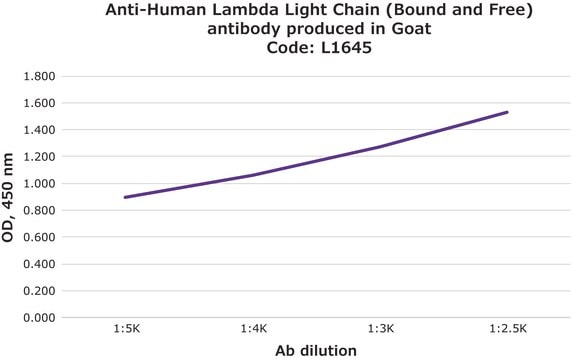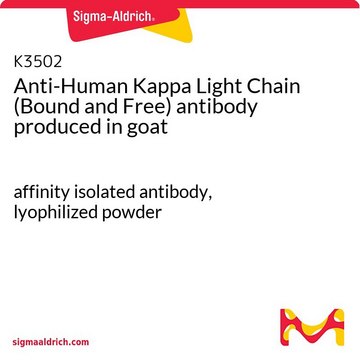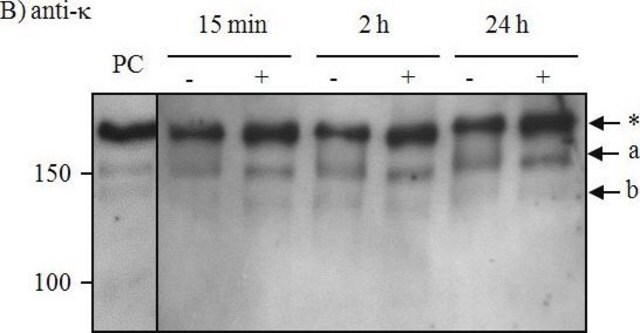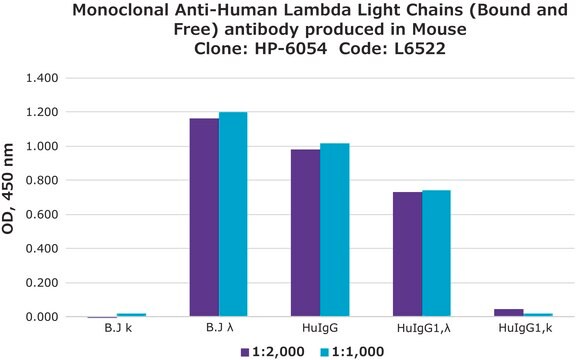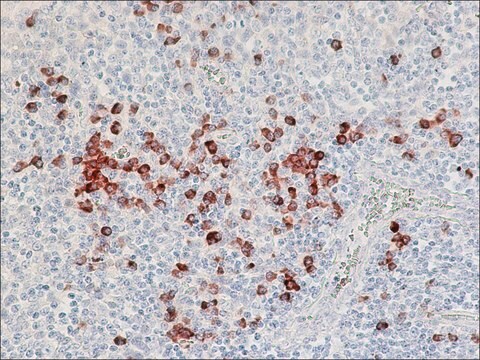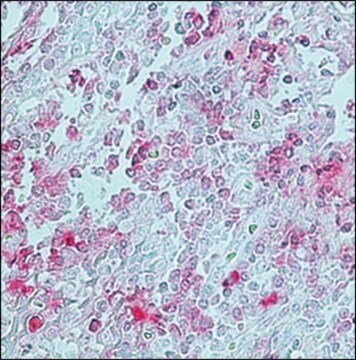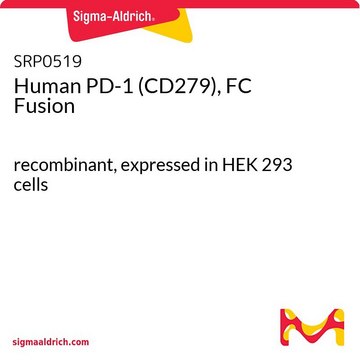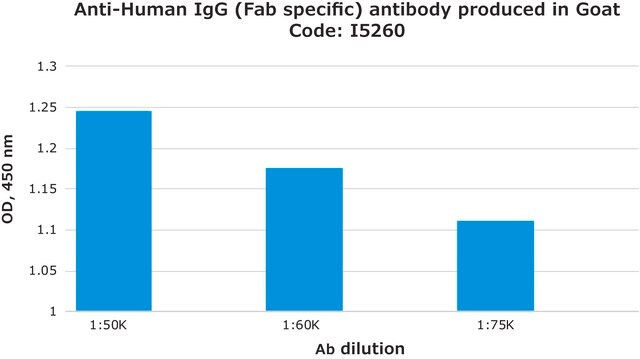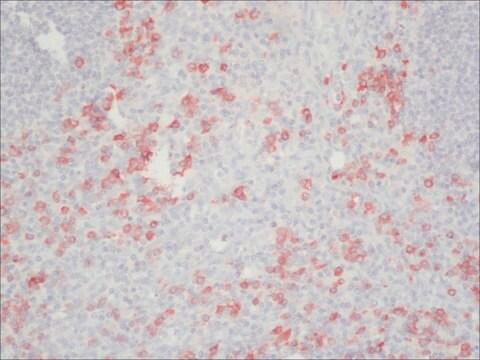K4377
Monoclonal Anti-Human Kappa Light Chain (Bound and Free) antibody produced in mouse
clone KP-53, ascites fluid
Sinonimo/i:
Monoclonal Anti-Human Kappa Light Chain (Bound and Free)
Autenticatiper visualizzare i prezzi riservati alla tua organizzazione & contrattuali
About This Item
Prodotti consigliati
Origine biologica
mouse
Coniugato
unconjugated
Forma dell’anticorpo
ascites fluid
Tipo di anticorpo
secondary antibodies
Clone
KP-53, monoclonal
contiene
15 mM sodium azide
tecniche
indirect ELISA: 1:10,000
Isotipo
IgG1
Condizioni di spedizione
dry ice
Temperatura di conservazione
−20°C
modifica post-traduzionali bersaglio
unmodified
Cerchi prodotti simili? Visita Guida al confronto tra prodotti
Descrizione generale
Monoclonal Anti-Human Kappa Light Chain (mouse IgG1 isotype) is derived from the hybridoma produced by the fusion of mouse myeloma cells and splenocytes from an immunized mouse. Immunoglobulins G are made up of two identical light chains and two identical heavy chains, that are covalently connected by interchain disulphide bonds. Genes of kappa and lambda constant region are mapped on to human chromosome 2.
Specificità
The antibody is specific for human kappa (κ) light chains. This antibody is reactive with intact IgG (κ), IgM (κ), free kappa light chains, and Bence-Jones kappa light chains. It is non-reactive with lambda light chains.
Applicazioni
Monoclonal Anti-Human Kappa Light Chain (Bound and Free) antibody produced in mouse has been used for:
- immunodetection
- in western blot analysis
- in intracellular kappa light chain staining for flow cytometric analysis
Stato fisico
Monoclonal Anti-Human Kappa Light Chain (Bound and Free) antibody produced in mouse is provided as ascites fluid with 0.1% sodium azide (see MSDS) as a preservative.
Stoccaggio e stabilità
For continuous use, store at 2-8 °C. For extendedstorage, the solution may be frozen in working aliquots. Repeated freezing and thawing is not recommended. Storage in "frost-free" freezers is not recommended. If slight turbidity occurs upon prolonged storage, clarify the solution by centrifugation before use.
Esclusione di responsabilità
Unless otherwise stated in our catalog or other company documentation accompanying the product(s), our products are intended for research use only and are not to be used for any other purpose, which includes but is not limited to, unauthorized commercial uses, in vitro diagnostic uses, ex vivo or in vivo therapeutic uses or any type of consumption or application to humans or animals.
Non trovi il prodotto giusto?
Prova il nostro Motore di ricerca dei prodotti.
Codice della classe di stoccaggio
10 - Combustible liquids
Classe di pericolosità dell'acqua (WGK)
nwg
Punto d’infiammabilità (°F)
Not applicable
Punto d’infiammabilità (°C)
Not applicable
Scegli una delle versioni più recenti:
Possiedi già questo prodotto?
I documenti relativi ai prodotti acquistati recentemente sono disponibili nell’Archivio dei documenti.
I clienti hanno visto anche
Visualisation of intracellular production bottlenecks in suspension-adapted CHO cells producing complex biopharmaceuticals using fluorescence microscopy
Mathias S, et al.
Journal of Biotechnology, 271, 47-55 (2018)
Upregulated expression of kappa light chain by Epstein-Barr virus encoded latent membrane protein 1 in nasopharyngeal carcinoma cells via NF-kappaB and AP-1 pathways
Liu H, et al.
Cellular Signalling, 19(2), 419-427 (2007)
Chloe L Stoyle et al.
The Biochemical journal, 474(18), 3179-3188 (2017-08-09)
Rodent monoclonal antibodies with specificity towards important biological targets are developed for therapeutic use by a process of humanisation. This process involves the creation of molecules, which retain the specificity of the rodent antibody but contain predominantly human coding sequence.
Heterogeneity of aberrant immunoglobulin expression in cancer cells
Hu D, et al.
Cellular & Molecular Immunology, 8(6), 479-479 (2011)
Expression and secretion of immunoglobulin alpha heavy chain with diverse VDJ recombinations by human epithelial cancer cells
Zheng H, et al.
Molecular Immunology, 44(9), 2221-2227 (2007)
Il team dei nostri ricercatori vanta grande esperienza in tutte le aree della ricerca quali Life Science, scienza dei materiali, sintesi chimica, cromatografia, discipline analitiche, ecc..
Contatta l'Assistenza Tecnica.